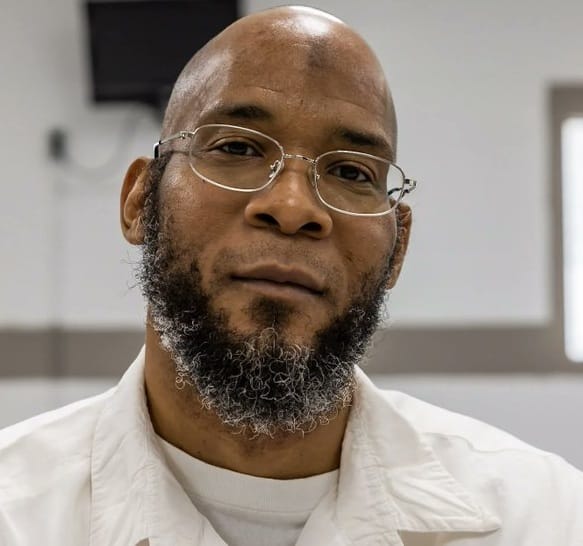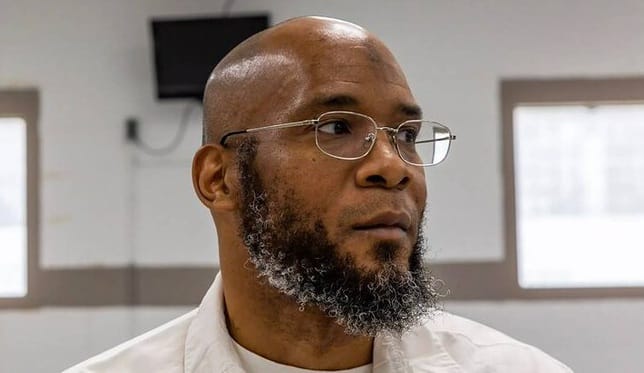
In a case that has captured national attention, Marcellus Williams, a Missouri man sentenced to death for the 1998 murder of 15-year-old Tyneesha Evans, now awaits the U.S. Supreme Court’s decision regarding his execution. This high-stakes situation raises serious questions about justice, mercy, and the role of the legal system in capital punishment cases.
Background of the case
Marcellus Williams was convicted in 2001 based primarily on circumstantial evidence, including a knife found near the crime scene and testimony linking him to the murder. There has been significant controversy over his conviction, primarily stemming from issues with the integrity of the evidence used against him. Williams has consistently asserted his innocence, and recent developments have cast further doubt on his guilt.
In 2017, the Missouri Supreme Court granted a stay of execution to Williams after new DNA evidence emerged that suggested another man may have been responsible for Evans’ murder. This revelation reignited the debate about the reliability of forensic evidence and the potential for wrongful convictions in death penalty cases.
Victim’s family: Appeal for mercy
One of the most poignant aspects of this case is the stance taken by Tyneesha Evans’ family. Despite the terrible loss they suffered, family members have publicly expressed their wish that Williams not be executed. They argue that taking someone else’s life will not bring their daughter back and that justice should focus on healing rather than retribution.
This approach highlights the complexity of emotions involved in violent crime cases. Victims’ families often find themselves torn between their own grief and their understanding of the broader implications of the death penalty. The Evans family’s appeal for mercy is evidence of their compassion, emphasizing that true justice may lie in forgiveness rather than retribution.
Prosecutorial discretion and ethical considerations

Interestingly, the prosecuting attorney in the case has also opposed the death penalty for Williams. This is an important stance, as it reflects a growing trend among legal professionals who question the morality and efficacy of the death penalty. Prosecutors, who often play a key role in deciding whether or not to pursue the death penalty, are increasingly considering the ethical implications of their choices.
The prosecutor’s decision to advocate against Williams’ execution raises important questions about the role of discretion in the legal system. It suggests that not all crimes require the ultimate punishment, and that a more nuanced approach to justice may be necessary – one that prioritizes rehabilitation and restorative justice over retribution.
The Supreme Court’s role
As the case moves to the Supreme Court, it underscores the important role the judiciary plays in death penalty cases. The judges will need to evaluate the evidence, consider the arguments on both sides, and ultimately determine whether Williams’ execution should continue. This decision will not only affect Williams and the Evans family, but also set a precedent for future death penalty cases.
The Supreme Court has historically been a battleground for debates on capital punishment, grappling with issues such as the constitutionality of the death penalty, racial disparities in sentencing, and the reliability of evidence. The judges’ decision in this case could impact how similar cases are handled in the future, not only affecting Missouri, but potentially reshaping the national conversation about capital punishment.
Death penalty debate
Marcellus Williams’ case is situated within a broader national dialogue about capital punishment. Many states, including Missouri, have retained the death penalty despite growing scrutiny and calls for reform. Critics argue that the system is riddled with flaws, including the potential for wrongful convictions, racial bias, and inadequate legal representation for defendants.
On the other hand, supporters of the death penalty often argue that it serves as a deterrent against violent crime and provides justice to victims and their families. However, the emotional complexities of such cases challenge the notion that the death penalty is a straightforward solution to crime.
Moving Forward: The Influence of Public Opinion
Public opinion plays a key role in shaping policies regarding the death penalty. As awareness of wrongful convictions and the moral implications of capital punishment grows, more people are questioning its legitimacy. Advocacy groups continue to press for reforms, arguing for alternatives to executions, such as life imprisonment without parole.
The voices of victims’ families, such as that of Tyneesha Evans’ family, are important in this conversation. Their experiences and perspectives can help humanize the debate, reminding society that there are real people behind every case who are struggling with loss, pain, and a quest for justice.
See more about: